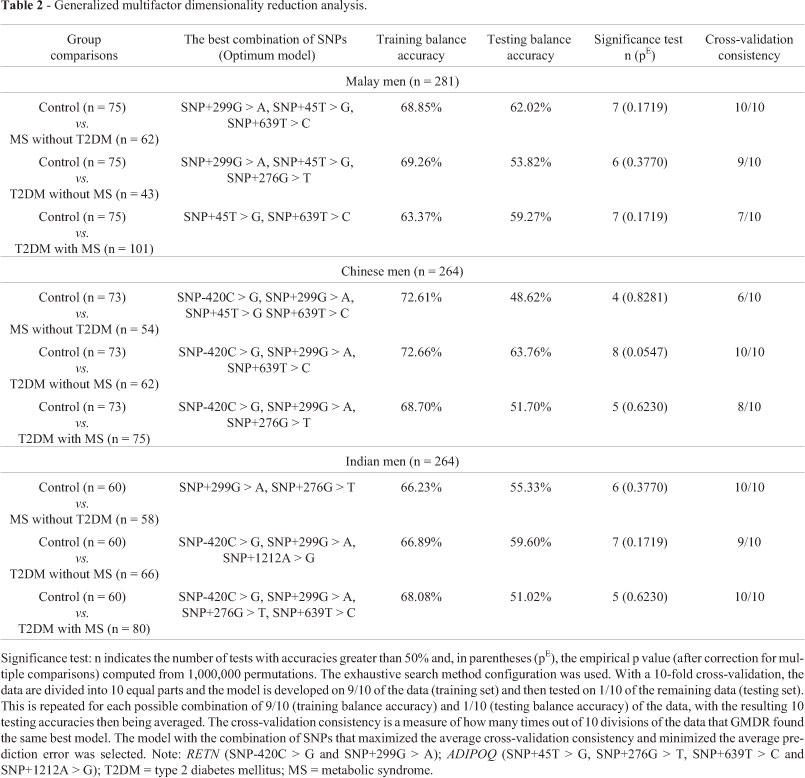Epistasis (gene-gene interaction) is a ubiquitous component of the genetic architecture of complex traits such as susceptibility to common human diseases. Given the strong negative correlation between circulating adiponectin and resistin levels, the potential intermolecular epistatic interactions between ADIPOQ (SNP+45T > G, SNP+276G > T, SNP+639T > C and SNP+1212A > G) and RETN (SNP-420C > G and SNP+299G > A) gene polymorphisms in the genetic risk underlying type 2 diabetes (T2DM) and metabolic syndrome (MS) were assessed. The potential mutual influence of the ADIPOQ and RETN genes on their adipokine levels was also examined. The rare homozygous genotype (risk alleles) of SNP-420C > G at the RETN locus tended to be co-inherited together with the common homozygous genotypes (protective alleles) of SNP+639T > C and SNP+1212A > G at the ADIPOQ locus. Despite the close structural relationship between the ADIPOQ and RETN genes, there was no evidence of an intermolecular epistatic interaction between these genes. There was also no reciprocal effect of the ADIPOQ and RETN genes on their adipokine levels, i.e., ADIPOQ did not affect resistin levels nor did RETN affect adiponectin levels. The possible influence of the ADIPOQ gene on RETN expression warrants further investigation.
adipokine; ADIPOQ; epistasis; interaction; RETN






